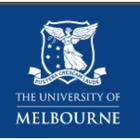随着2023级新生的入学,哈佛大学的校报The Harvard Crimson(《哈佛深红报》)评选出了10篇新生的优秀文书作品,并附上了相应的评析。

在所有申请者都和你一样拥有着绝佳的GPA/SAT成绩的时候,如何用精彩优秀的文书脱颖而出会是很让人头疼的问题。对于正在苦恼文书写作的同学,这些优秀文书范例就是参考答案般的存在了,请各位正在准备留学申请的同学持续关注哦~
Sandra
马萨诸塞州 华裔女生
公立高中,毕业班有306名学生
GPA:3.95/4.0
课外活动:模拟联合国主席,帮助无家可归者的组织主席,贝尔蒙西亚(社区服务俱乐部)秘书,演讲和辩论的创始人和主席
奖项:AP国家学者,贝尔蒙特高中图书奖,贝尔蒙特拉丁图书奖
所选专业:心理学
Essay正文:"Ut Italiam laeti Latiumque petamus"
"Sandra, would you mind reading the next few lines and translating them for us?"
The professor glanced at me, a kind glimmer in his bespectacled eyes. I gulped. I was in a classroom of eighteen, five of whom were high school Latin teachers. And I was supposed to recite and translate Livy's Ab Urbe condita — with elisions! After fumbling through a few words and mistaking a verb for a noun, I finished the first sentence. I skimmed the second line, looking for the main verb. Singular. I searched for a singular noun and pieced the two together. Then, I noticed an accusative and added it as a direct object. As I continued, a burst of exhilaration shot through my body. My eyes darted across the page, finding a verb, a noun, and objects. I reached the end of the passage and grinned, relief pulsing in my veins.
"Very good!" The professor beamed at me before selecting his next victim.
A few months ago, I never would have imagined myself sitting in Harvard's Boylston Hall this summer for six hours a week, cherishing the ancient literature of Rome. Even though the professor decided I was eligible for the course despite not taking the prerequisite, I was still nervous. I worked hard in the class, and it reminded me just how much I love the language.
Translating has always given me great pleasure and great pain. It is much like completing a jigsaw puzzle. Next, I look for phrases that connect the entire clause — does this adjective match this noun? Does this puzzle piece have the right shape? The middle of the sentence is the trickiest, full of convoluted dependent clauses, pieces colored ambiguously and with curves and edges on all four sides. I am sometimes tangled in the syntax, one of the worst feelings in the world. After analyzing every word, I try to rearrange the pieces so they fit together. When they finally do, I am filled with a satisfaction like no other. Translating forces me to rattle my brain, looking for grammatical rules hidden in my mind's nooks and crannies. It pushes my intellectual boundaries. No other language is as precise, using inflection to express gender, number, and case in just one word. When I pull apart a sentence, I am simultaneously divulging the secrets of an ancient civilization. Renowned scholars are telling the stories of their time through these words! No other language is as meticulous. Every line follows the same meter and the arrangement of every word is with a purpose. The story of Pyramus and Thisbe includes a sentence where the word "wall" is places between the words "Pyramus" and "Thisbe" to visually show the lovers' separation. Translating is like life itself; the words are not in logical order. One cannot expect the subject of a sentence to appear at the beginning of a clause, just like one cannot plan the chronology of life. Like the delayed verb, we do not always know what is happening in our lives; we just know it is happening.
When translating we notice the nouns, the adjectives, and the conjunctions just like we see the people, senses, and connections of our lives. However, we often do not know what we are doing and ask ourselves the age-old question: Why are we here? Perhaps we are here to learn, to teach, to help, to serve, to lead, or just to live. We travel through life to decide what our purpose is, and it is that suspense and our unknown destinies that make the journey so irresistibly beautiful. I feel that same suspense and unknown when I translate, because I am beautifully struggling to unlock a past I know very little of. It is unbelievably exhilarating.
Thus, I question why others consider Latin a dead language. It is alive in all of the Western world. The Romance languages of French, Spanish, and Italian all have Latin origins. Without Latin, I would not be able to write this essay! It is alive in the stories it tells. You may see an apple and associate it with orchards, juice, pie, and fall. When I see an apple, I think of the apple of discord thrown by Eris that ultimately caused the Trojan War. This event, albeit destructive and terrifying, leads to the flight of Aeneas and eventually, his founding of Rome.
I study Latin for its rewarding return, incredible precision, intellectual challenge, rich history and culture, and deep influence on our world. I study Latin to show others how beautiful it is, to encourage the world that it should be valued. I study Latin to lead our society, like Aeneas did, toward a new city, a new dawn where everyone appreciates a mental trial of wits, everyone marvels at a vibrant past, and no one wonders whether Latin is dead or not.
深红报点评:Sandra的文章最引人注目的地方不是她和高中的拉丁语老师一起上课,也不是她在哈佛上夏校。更确切地说,是Sandra在翻译拉丁语时深入思考的过程。从她描述翻译过程的生动细节中,我们可以清楚地看到,她对待翻译是相当认真的,读那些表达出如此热情的文书总是一种乐趣。
也就是说,有时候,Sandra的作品似乎有意在没有必要的情况下写出特别构思的句子。例如,“One cannot expect the subject of a sentence to appear at the beginning of a clause, just like one cannot plan the chronology of life”,这句话似乎是有意为之的诗意句子,符合Sandra所说的“translating is like life itself.”。总的来说,这个比喻是有效的,但是你不应该在你的文章中被迫写出带有戏剧性的句子。如果你写的东西是你所热爱的,那么你的写作方式自然会变得清晰。

哈佛大学商学院硕士录取率 申请条件以及专业推荐
商科是现在不少学生都在申请就读的学科,该学科中包含的分支专业很多样,商科涵盖范围广、涉及专业多,而且不同的国家、不同大学在专业细分上也有差异,美国开设商学院的大学可不少,哈佛大学就是其中之一,这是美国一所教学实力很强的学校

哈佛大学录取分数线是多少?申请条件?有哪些专业?
想要出国留学,知道学校的录取分数线是很重要的,这样能方便大家提前做好准备,把相关的材料都准备齐全,这样入学的概率更大。那么今天我们讲述的是哈佛大学录取分数线是多少?哈佛大学申请条件?

美国哈佛大学高考录取分数线 想申请这所院校的朋友加油吧!
为此今天小编就为大家整理了美国哈佛大学高考录取分数线等相关信息。在此推荐给大家以供广大远赴他国的学习的学子们作为参考,希望能对你有所帮助。有任何问题都可以咨询IDP留学顾问哦!

前往美国攻读哈佛大学商学院有哪些热门专业可以推荐?看完这篇文章你就清楚了
众所周知,美国是久负盛名的商业强国,境内开设商学院的院校数不胜数,而哈佛大学商学院就是最出色的,因此也俘获了一众留学生的心,可是许多人都不清楚这所商学院中的热门专业,为此今天小编就为大家整理了前往美国攻读哈佛大学商学院有哪些热门专业可以推荐等相关信息

美国哈佛大学本科优势专业有哪些?申请条件有哪些?学费多少钱?
哈佛大学本科申请要求US News排名:2录取率:7%成绩要求新SAT(预估):论证性阅读和写作中间段分数740-800数学中间段分数(25%-75%)740-800总分中间段分数(25%-75%)1480

哈佛大学申请条件都有哪些? 这几大热门专业你更青睐哪个?
而在美国最佳大学排行当中位居第3名。毕业于c9院校的学子或高考成绩非常优秀的学子,可试着申请哈佛大学。哈佛大学申请条件都有哪些?今天小编就向大家做简单的回答,以供各位学子思考。





